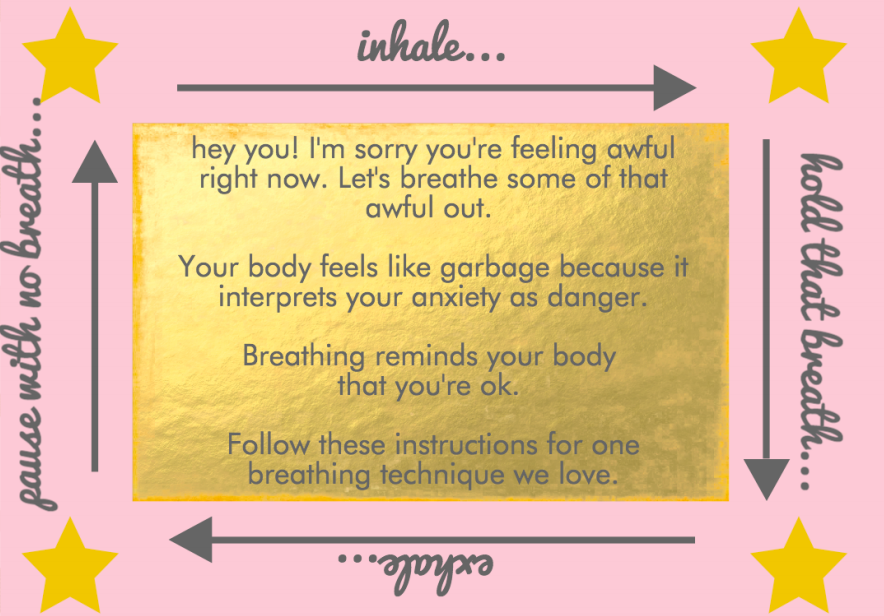
You can love your family tremendously and still have some serious issues with food-shaming that go decades deep.
The holidays are meant to be wonderful times spent with friends and family, but they can also be terrible times spent with those same people. Depending on your relationships and everyone’s approach to conflict, things can get really sticky sometimes — especially when years of trauma can build upon each other and rear its ugly head at inopportune times.
You can love your family tremendously and still have some serious issues that go decades deep. We as individuals are simply imperfect; it’s important to remember that families are a collection of imperfect people.
For many of us with eating disorders, Thanksgiving can be a difficult time to be around folks who may unknowingly have served as bullies of sorts throughout our developmental years and may even continue to be so. Health-trolling, negative remarks about their own thinner bodies, and comments about the amount of food we choose to consume (or not consume) are common triggers that hit us out of nowhere as we attempt to joyfully celebrate with our loved ones.
So how the hell do we navigate these emotional landmines and keep ourselves from collapsing under the stress of trying to keep it together while not lashing out and returning the hurt?
Affirmations, boundary-setting, and box breathing are great ways to push through the madness.
1. Affirmations
We often say affirmations without even realizing that we’re doing it. “You’ve got this.” “This too shall pass.” Affirmations are statements which, when repeated often enough, begin to change the way you think and are one of the easiest forms of self-soothing. They can be somewhat meditative when paired with box breathing.
“I’m a leaf on the wind” isn’t going to do you much good when you’ve got a family member yakking in your ear about your shortcomings or recently expanded girth. Bustle has some excellent suggestions. Here are a couple of gems to help you through your tough time:
"My worth isn't defined by my weight. I define my worth and I am worthy."
“I accept my body the way it is.”
“I love my body as it is today.”
Say them out loud in front of a mirror, looking yourself in the eye. If you cannot get away or are unable to audibly speak them, they can still be effective if you are able to shut your eyes and think the words silently in your head. I like to imagine the words themselves. Sometimes I’ll even trace them out with my finger onto my thigh under the table where no one can see what I am doing.
You Might Also Like: How I Went From An Eating Disorder To Eating Intuitively
2. Boundary Setting
For many of us, setting boundaries can be incredibly difficult, especially when it comes to older family members. After all, these were the folks who raised you and helped to create who you are today — for better or worse. Still, you have the right to set boundaries when a person is making you uncomfortable and hurting you, no matter who they may be to you.
Many times they won’t even know that they have said something hurtful. For instance, my mother is the kindest and most fervent ally that I could hope for. She will always defend me and back me up, and I know she will do everything within her power to protect me. However, sometimes she slips. She’s human and humans are not perfect, especially with the stress of being a holiday hostess. I grew up hearing her criticize her body, which was much smaller than mine by the time I was in eighth grade. It gave me a tremendous complex thinking, “If she thinks that about her body, what on earth does she think about mine?”
Over the recent years, I learned that it is okay to say, “I know that we all have the right to our body hang-ups, but it really hurts me to hear you bad-mouth your body in front of me. It triggers a host of my own body issues and it would really help me if you would be mindful of that.” Over time, it has mostly stopped. You have every right to assert your boundaries, especially when it comes to your mental and physical well-being.
If a relative keeps making comments about your body or eating habits, you can tell them outright “I am not sure what you are trying to accomplish with these statements, but they’re hurtful. I know you love me and would not wish to hurt me, so please stop.”
“I do not make those comments about you. I would like you to show me the same respect.”
“I really like who I am and what I look like. I wish that for everyone here, especially you. Can we move on to a different topic?”
“I’m happy with the choices that I make and they are just that: my choices to make.”
If they are focusing on negative things and sending you through a spiral, you can try the sunny, “Why focus on the negative? We are rarely together like this. Let’s talk about positive things. What made you happy this week?”
Sometimes well-meaning (and not-so-well-meaning) relatives will bring up a hurtful event like a breakup, a failed diet (it’s not your fault, diets are flawed!), or other things that just don’t feel good. While it might be okay to discuss them at some point, the holidays are not the time. It’s okay to say, “Focusing on _____ only brought me pain and stress. I’ve chosen to move beyond them. I hope you’ll respect that by moving on with me, too.”
3. Box Breathing
Ok. So, going to your happy place with positive affirmations might not have worked and you can feel the panic building. Maybe you don't feel safe or ready to set a verbal boundary with an older relative. It’s time to go to lock yourself in another room for a few minutes, step outside, or take an extended bathroom trip. Blame it on the gravy when you return to the table and take some time for yourself.
Box breathing is a breathing technique used by lots of different folks, from marines to nurses to just about anyone in really intense work environments. While you can use it to just relax, it’s especially effective during crisis situations or panic attacks. It has been almost as effective for me as my medication for breakthrough anxiety, allowing me to rely less on things that may not quickly be at hand (also saving them for more extreme situations) and have more control over how to manage my own situation, using my mind and body as a tool to fight anxiety.
It’s easy to do and accessible for all of us because BREATHING IS FREE and our bodies need oxygen to survive. Your body is just a little out of whack from the stress right now, and this will help get it back in line.
Find a quiet space that you can take over for four minutes. Dim the lights and sit down. Make sure your posture is straight and your feet are on the floor. Exhale all of the air from your lungs. Hold it for four seconds (counting 1, 2, 3, 4 in your head). Inhale slowly, counting to four in your head, making sure your lungs are absolutely full. Hold it for four seconds. Exhale slowly for four seconds. Repeat over and over for up to four minutes if you have time, but 3-4 cycles will definitely help reset your body and breathing.

The holidays can be stressful for everyone. It’s important to remember that it only happens a couple of times a year and everyone has their hangups. It’s okay to set boundaries and it’s also okay to JUST LEAVE if you have to. Family is super important, but you have every right to remove yourself from harmful spaces.








